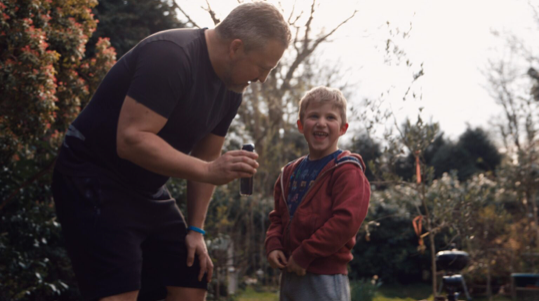Harnessing Hope to Enhance Mental Health
- Alex Smith
- Oct 9, 2025
- 3 min read
Living with Duchenne Muscular Dystrophy (DMD) presents unique challenges that ripple through every aspect of family life. The emotional and mental health toll can be profound, yet there is a powerful resource that families can draw upon to navigate these difficult waters. This resource is hope. It acts as a beacon, guiding families through uncertainty and hardship, helping them to maintain resilience and emotional well-being. In this post, I will share practical family coping strategies that harness this vital force to enhance mental health and foster a supportive environment.
Understanding Family Coping Strategies for Mental Health
When a family member is diagnosed with DMD, the entire family system is affected. Coping strategies are essential tools that help families manage stress, maintain emotional balance, and support one another effectively. These strategies are not one-size-fits-all but can be tailored to fit the unique dynamics and needs of each family.
Some effective family coping strategies include:
Open Communication: Encourage honest and compassionate conversations about feelings, fears, and hopes. This openness reduces isolation and builds trust.
Routine and Structure: Establishing predictable daily routines can provide a sense of stability and control amid uncertainty.
Shared Responsibilities: Distributing caregiving tasks and household duties helps prevent burnout and fosters teamwork.
Seeking Professional Support: Engaging with mental health professionals who understand the complexities of DMD can provide families with tailored guidance and emotional support.
Building a Support Network: Connecting with other families facing similar challenges creates a community of understanding and shared experience.
By integrating these strategies, families can create a nurturing environment that supports mental health and emotional resilience.

The Role of Positive Mindset and Emotional Resilience
Mental health is deeply influenced by the mindset we cultivate. A positive mindset does not mean ignoring difficulties but rather approaching them with a constructive and hopeful attitude. Emotional resilience is the ability to bounce back from adversity, and it can be strengthened through intentional practices.
Here are some ways families can nurture a positive mindset and resilience:
Focus on Strengths: Celebrate small victories and individual strengths within the family. This reinforces confidence and motivation.
Practice Mindfulness: Mindfulness exercises, such as deep breathing or guided meditation, can reduce anxiety and improve emotional regulation.
Encourage Self-Care: Each family member should prioritize activities that replenish their energy and joy, whether it’s a hobby, exercise, or quiet time.
Set Realistic Goals: Break down challenges into manageable steps to avoid feeling overwhelmed.
Maintain Flexibility: Adaptability in the face of changing circumstances helps families stay balanced and responsive.
These approaches empower families to face the daily realities of DMD with courage and grace.

Practical Ways of Harnessing Hope in Daily Life
Incorporating and harnessing hope into daily life is a powerful way to enhance mental health. Here are some actionable recommendations to cultivate hope within the family:
Create a Hope Journal: Encourage family members to write down moments of gratitude, achievements, and positive thoughts.
Visual Reminders: Use inspirational quotes, images, or symbols around the home to reinforce hopeful thinking.
Celebrate Milestones: Acknowledge progress, no matter how small, to build a sense of accomplishment.
Engage in Community Activities: Participating in support groups or charity events can connect families with others who share their journey.
Educate and Advocate: Learning about DMD and advocating for research and support services empowers families and fosters a proactive outlook.
By embedding these practices into everyday routines, families can nurture a hopeful environment that supports mental well-being.
Supporting Mental Health Through Community and Connection
No family should face the challenges of DMD alone. Building strong connections with others can provide emotional support, practical advice, and a sense of belonging. Community involvement is a cornerstone of mental health support.
Ways to strengthen community ties include:
Joining Support Groups: These groups offer a safe space to share experiences and gain insights.
Participating in Fundraising Events: Engaging in events not only raises awareness but also fosters solidarity.
Connecting with Healthcare Providers: Establishing open communication with medical teams ensures comprehensive care.
Utilising Online Resources: Many organisations provide valuable information and virtual support networks.
These connections help families feel understood and supported, reducing feelings of isolation and enhancing resilience.
In the journey with Duchenne Muscular Dystrophy, maintaining mental health is as crucial as managing physical health. By embracing family coping strategies and nurturing hope, families can create a foundation of strength and optimism. This foundation supports not only the individual living with DMD but also the entire family unit, fostering a future filled with compassion, courage, and connection.



Comments